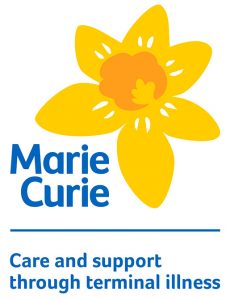Mark Hughes has terminal bone cancer. In fact, he has been living with cancer for 19 years, but in 2011 he was given the numbing news that the cancer was terminal and he could no longer work.
Ever since then, Mark has faced a frustrating struggle trying to claim benefits from the Department for Work & Pensions (DWP) – and has sought help from the charity, Marie Curie.
Over several months, Mark received numerous letters from the DWP about his entitlement to claim benefit. “I was having to deal with all of this while still dealing with the news that I was terminally ill,” explained Mark.
Following a visit to his home, the DWP made a decision to stop his benefits.
“The people who came to the house weren’t medically trained and when I appealed, I asked them to contact my GP, which they said they wouldn’t do,” said Mark.
“I was told that they did not contact doctors or hospitals for medical details.”
Many people at the end of their life rely on financial support as they can no longer work, or because of the increased costs associated with living with a terminal illness.”
After appealing the decision, Mark won and received his benefits with a letter saying that the DWP would not contact him again until 2025.
But, in November 2018, he received the same assessment form and his Employment and Support Allowance was stopped.
“I contacted Jobcentre Plus, who couldn’t give me a reason why the payments were stopped.
Then, a few days later, I received a letter saying I was entitled to benefits,” he added.
“Since 2014, only one person at the DWP has ever tried to help me. Every time I get a letter from them, I’m worried.”
Many people at the end of their life rely on financial support as they can no longer work, or because of the increased costs associated with living with a terminal illness.
A recent inquiry into benefits access by the All Party Parliamentary Group for Terminal Illness found that the additional cost of living with a terminal illness was between £12,000 to £16,000 a year.
However, accessing benefit support is difficult for those with a terminal illness.
There is a system allowing people who are dying fast-track access to financial support at the highest available rate, but only if they can prove they have six months or less to live.
No-one, when they are dying, should be forced to be looking for work to get the financial support they need.”
For most terminal illnesses, but particularly less well understood conditions such as motor neurone disease, estimating how long an individual might live is difficult.
Many GPs and nurses don’t feel confident saying someone has six months left to live. So many terminally ill people end up going through the same bureaucratic process as everyone else, which can take the DWP on average 16 weeks to complete.
As part of this process, many will have to undergo an assessment of their fitness to work or even prove that they are looking for work. And that’s the issue. No-one, when they are dying, should be forced to be looking for work to get the financial support they need.


Marie Curie support more than 40,000 terminally ill people in the UK a year.
No-one should face a 16-week wait for financial support when their remaining time to spend with their loved ones is so short.
No-one should be negotiating Government red tape at the end of their lives.
The current system doesn’t work. About 17,000 people in the last five years have died while waiting for the DWP to make a decision about Personal Independence Payment – just one of the available benefits. That’s 10 people a day.
That’s why Marie Curie and the Motor Neurone Disease Association (MNDA) are campaigning for the six-month rule to be scrapped and for clinicians across the UK to use their own informed judgement to decide when someone is terminally ill.
The six-month definition of terminal was introduced in 1990 by politicians.
Many clinicians, medical representative bodies and charities agree that the arbitrary time limit should be removed, since it is particularly difficult for healthcare professionals to predict accurately how long someone has left to live.
The campaign is modelled on one run by Marie Curie and MND Scotland, which has led to the Scottish Government removing the six-month rule for newly devolved benefits.
Terminally ill people in Scotland will receive fast-track access to benefits at the highest level when their clinician concludes that they are dying, without any arbitrary time limit.
After sustained pressure from charities, the media and supporters, the UK Government has announced a review of how well the benefits system works for people with a terminal illness.
Rotary clubs have had an instrumental role in securing this review, with many members signing the petition to the Prime Minister, which was handed into 10 Downing Street in August with more than 55,000 signatures.
For more information, visit the Marie Curie website.



























































